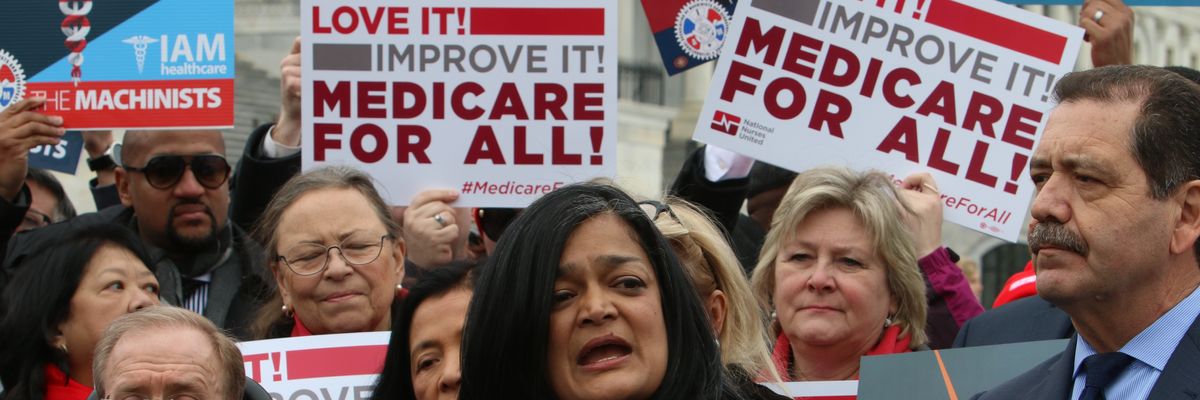Dear Member of Congress:
As legislation for national single payer health care, an Improved Medicare for All, has not yet been introduced into the current Congress, now is the time to work to make that bill what it must be to solve the nation’s health care crisis.
We thank you for your past sponsorship of national single payer. We urge you to work to assure that the upcoming legislation is based on sound policy so that, when implemented, it will bring excellent care to all as it frees our health care from the corporate control and profits that have made it so cruel and expensive.
Then we urge you to sponsor, speak boldly, and stand up for a national single payer, not-for-profit, publicly-funded health care system, because nothing less can bring efficient, humane, compassionate care to everyone in our county.
The new bill needs these additions to HR 1976, The Medicare for All Act of 2021, from the last Congress:
1. Conversion of for-profit institutions to not-for-profit status
For-profit hospitals, nursing homes, and other institutions have been proven to provide inferior care at higher cost, and that is why the best policy proposal, the Physicians Proposal for a National Health Program, does not allow them to participate in a single payer plan. The concern and solution are discussed by Himmelstein and Woolhandler in a 2018 Health Affairs article. To accomplish this and preserve health care infrastructure, the bill must ban for-profit hospitals and other facilities and contain a plan for conversion as was in the Conyers bill, HR 676. HR 676 was in the Congress from 2003 through 2018 and had 124 cosponsors, a higher number than any single payer bill since then has achieved, indicating that such a provision did not hinder co-sponsorship. As we know, the issue becomes more crucial as private equity and venture capital firms are overwhelming all parts of health care.
2. Just transition for displaced workers resulting from this Act
In addition to first priority in job placement and retraining, the Conyers bill provided for two years of annual salary to displaced workers. H.R. 1976 should be amended to include that provision. This is critical not only to a just transition but also to winning the support of the workers and unions vital to passage of the bill.
3. Progressive funding for the Act
The Conyers bill laid out a tax structure that provided for progressive funding. H.R. 1976 has no provision for funding by a progressive tax. That should be added to assure that the tax burden is shifted from workers to the wealthy, the billionaires, and corporate entities.
4. One-year transition period to Medicare for All
H.R.1976 added a transition period through a Medicare Buy-In sold on the Exchange. Because H.R. 1976 expands care while maintaining the private insurance companies, costs will skyrocket before the savings of single payer kick in. Such a provision lends credence to the false claim that the nation cannot move directly to Improved Medicare for All. Such a transition will have unequal impacts on different age groups in the population, causing disunity and undermining support for national single payer. There should be no staged age group inclusion, no Medicare Buy-In, no selling of Medicare on the Exchange. That would be an expensive administrative nightmare and contradict sound health policy. Medicare was implemented in 10 months in 1965, and Improved Medicare for All can also be implemented quickly.
We welcome discussion of these ideas and would be happy to meet with you to further examine these vital issues.
National Single Payer Steering Committee
Kay Tillow
Judy Albert, MD
Claire Cohen, MD
Sandy Fox, ACSW, LCSW
Ed Grystar
Ana Malinow, MD
